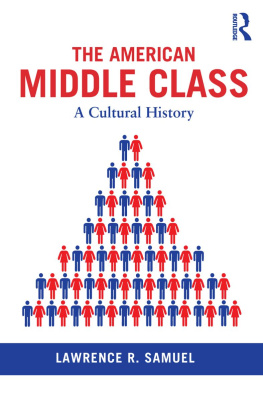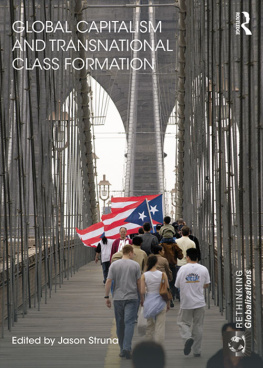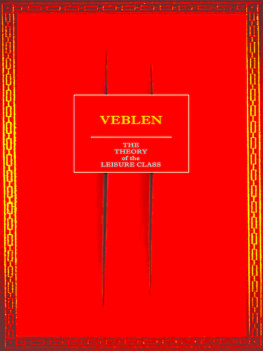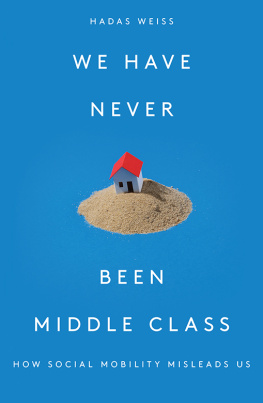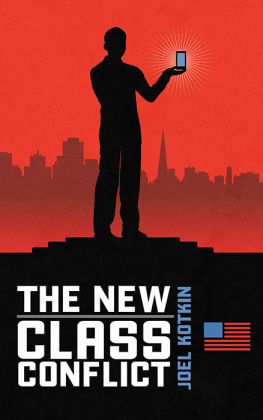ROUTLEDGE LIBRARY EDITIONS: SOCIAL THEORY
Volume 8
CAPITALISM, CLASS CONFLICT AND THE NEW MIDDLE CLASS
CAPITALISM, CLASS CONFLICT AND THE NEW MIDDLE CLASS
BOB CARTER
First published in 1985
This edition first published in 2015
by Routledge
2 Park Square, Milton Park, Abingdon, Oxon, OX14 4RN
and by Routledge
711 Third Avenue, New York, NY 10017
Routledge is an imprint of the Taylor & Francis Group, an informa business
1985 Robert Carter
All rights reserved. No part of this book may be reprinted or reproduced or utilised in any form or by any electronic, mechanical, or other means, now known or hereafter invented, including photocopying and recording, or in any information storage or retrieval system, without permission in writing from the publishers.
Trademark notice: Product or corporate names may be trademarks or registered trademarks, and are used only for identification and explanation without intent to infringe.
British Library Cataloguing in Publication Data
A catalogue record for this book is available from the British Library
ISBN: 978-0-415-72731-0 (Set)
eISBN: 978-1-315-76997-4 (Set)
ISBN: 978-1-138-78224-2 (Volume 8)
eISBN: 978-1-315-76373-6 (Volume 8)
Publishers Note
The publisher has gone to great lengths to ensure the quality of this reprint but points out that some imperfections in the original copies may be apparent.
Disclaimer
The publisher has made every effort to trace copyright holders and would welcome correspondence from those they have been unable to trace.
Capitalism, class conflict and the new middle class
Bob Carter
Routledge & Kegan Paul
London, Boston, Melbourne and Henley
First published in 1985
by Routledge & Kegan Paul plc
14 Leicester Square, London WC2H 7PH, England
9 Park Street, Boston, Mass. 02108, USA
464 St Kilda Road, Melbourne,
Victoria 3004, Australia and
Broadway House, Newtown Road,
Henley-on-Thames, Oxon RG9 1EN, England
Set in 10/11pt Times
by Columns of Reading
and printed in Great Britain
by St Edmundsbury Press Ltd
Bury St Edmunds, Suffolk
Robert Carter 1985
No part of this book may be reproduced in any form without permission from the publisher, except for the quotation of brief passages in criticism
Library of Congress Cataloging in Publication Data
Carter, Bob, 1949
Capitalism, class conflict, and the new middle class.
(The International Library of Sociology)
Based on the authors thesis (doctoral) University of Bristol, 1980.
Bibliography: p.
Includes index.
1. White collar workers. 2. Middle managers. 3. Supervisors, Industrial. 4. Social classes. 5. Class consciousness. 6. Marxian school of sociology. I. Title.
HD8039.M39C37 1985 305.556 84-9956
British Library CIP data also available
ISBN 0-7100-9624-0
Contents
This book has its origins in a doctoral thesis submitted to the University of Bristol, 1980. Although much changed, it is fitting that those who helped in many different ways with that thesis be publically thanked. These include, in particular, Paul Anderson, Ian Gibson and the many ASTMS members and officials whom it would be impolitic to name. For supervision of the thesis and continued help and encouragement, I am deeply indebted to Theo Nichols. I would also like to thank Huw Beynon who read the thesis and made a number of suggestions which have been incorporated into this work. Thanks are also due to Pam York and Jyoti Chotai for typing successive versions. The greatest debt is owed to Pat Kirkham who has lived with the work from its conception, read and re-read various drafts, corrected errors and encouraged me at every stage.
There are numerous theories advanced by sociologists to explain why socialism is not a practical possibility, but few have found such a sympathetic response in everyday thought as that which holds that the growth in white-collar employment provides increasing security to the capitalist system. The argument has two variants. This growth either creates an increasing middle class, hostile to socialism, or, if white-collar employees are to be regarded as workers, their growth erodes the traditional, class-conscious working class. The examination of social theories concerned with white-collar employment and the consciousness of white-collar workers is therefore of some ideological significance.
Despite this, the works by socialists addressed to these problems are few. This has meant that the initiatives in social theory have come largely from conservative theorists. During the 1950s, for example, it was a widely held opinion that a fundamental change had occurred in working-class consciousness: workers had become middle-class and their role as agents of radical social change had declined. The impact of the theory was also reflected in, and reinforced by, changes that took place in the political culture of Britain. The failure of the Labour Party in the 1951, 1955 and 1959 elections led the leadership of the Party to examine the causes of its defeats. Part of the explanation accepted by the leadership was that the Party was too narrowly based on the working class, a class objectively and subjectively on the wane. In order to re-assume power, the leadership believed it necessary to widen the base of the Partys support to include the growing professional, scientific and technical groups.
It was further believed that a precondition for this wider support was the abandonment of the outdated ideology of class. By the 1964 election the appeal of the Party was no longer
The victory of this approach within the Labour Party was, of course, far from uncontested. Likewise in social theory there were rearguard actions to arrest and reverse the shift away from class analysis. There were, in particular, attempts to demonstrate the continued existence of poverty and inequality and to insist on the viability of working-class communities and culture.
The urgency of the need for a thorough-going socialist examination of the changing occupational and class structure of capitalist societies appeared to recede somewhat during the 1960s. The growth of working-class militancy and the possibilities for social change that appeared to be opened up by the 1968 May Events in France restored faith in the traditional role of the proletariat. As for the growing number of employees who were not part of the traditionally defined manual working class, it only remained formally to acknowledge their growth before asserting their real position as actual or potential members of an increasingly militant proletariat.
The failure of Marxist social theory to take seriously changes in the structure of capitalist societies had grave consequences. It gave space for those theories proclaiming the imminence of a post-industrial society in which the working class is reduced to an impotent minority, an idea given additional weight by the potential applications of recent advances in micro-computer technology. More importantly, and in spite of ritualistic claims that white-collar workers were part of the working class, Marxist theory reinforced the idea that the proletariat was synonymous with the manual working class by the absence of systematic studies of white-collar work. Recent analyses by socialists such as Jeremy Seabrook and Andr Gorz, for example, that in different ways despair at the prospects for social change based upon the working class, a class defined only in terms of manual workers, are not therefore isolated aberrations, but reflect a failure of Marxism effectively to redefine the working class in accordance with changes in the capitalist labour process.




